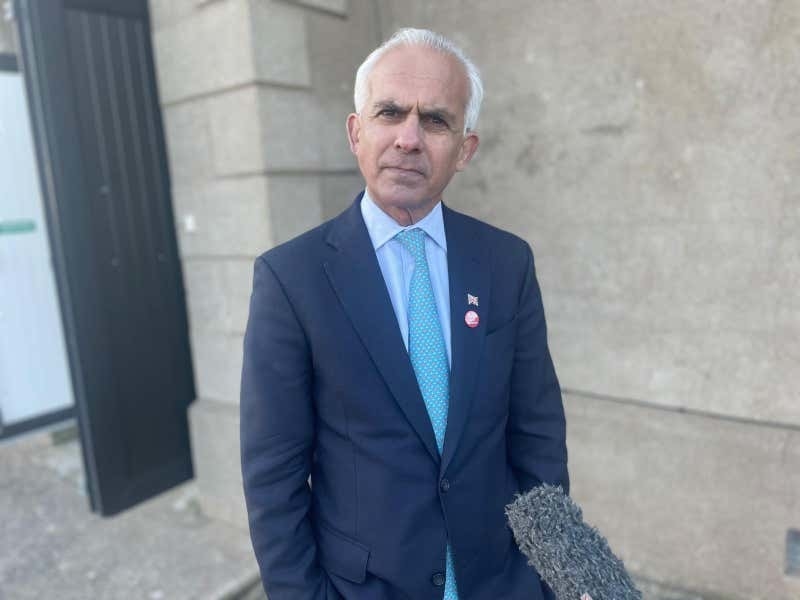By Mick Le Moignan
AS a schoolboy studying Latin, French and German, I remember thinking it would save everyone (especially me) a lot of trouble if the whole world adopted English as a common language. There would be fewer misunderstandings and wars and less pesky grammar to learn…
Of course, I was missing the point. Language is the finest and most distinctive expression of any culture. Cultural diversity is as important as biodiversity. And every language worth preserving needs a proper dictionary.
Compiling a dictionary is a rite of passage, not just for a language, but for the culture, the peoples and lands where it originates. It is a sign of maturity and self-confidence.
Jersey is fortunate to have both the Dictionnaithe Jèrriais-Angliais and its companion volume, the English-Jèrriais Dictionary, published by the Societé Jersiaise. Both are works of considerable scholarship, which were greatly enhanced by the contributions of enthusiastic volunteers.
In my youth, I’m ashamed to admit that Jèrriais tended to be scorned by the English-speaking ascendancy. I’m delighted that such views have been reversed in recent years, with more Jèrriais pieces published in this newspaper and more Islanders learning the ancient language than ever before. I believe one turning point in this process was the first production of a short play in Jèrriais broadcast by Channel Television in the late 1960s. After that then-remarkable event, my contemporaries and I developed a new respect for the Island’s language.
The situation is similar in Australia. At the time of first colonisation in 1788, it’s estimated that there were between 200 and 300 different languages spoken by First Nations people, with hundreds of different dialects. Many have died out but there is now a strong movement back towards valuing, preserving, teaching and using traditional languages.
I had the importance of dictionaries memorably impressed upon me when I was an undergraduate. A learned professor leaned on his lectern, glowered around the hall and demanded ‘How often do you people use a dictionary? Come on, let’s have a show of hands. Once a month? Once a week? Once a day?’
By the third question, the hands dropped from well over half the hall to a scattered few. The professor snorted: ‘Not good enough! You’re professional students of the English language. The Oxford English Dictionary is your bible. It’s probably the only worthwhile work that ever did come out of Oxford, in my view, but that’s another matter. The point is that it’s your job to consult a dictionary several times a day!’
Two recent books tell fascinating stories about the evolution of major dictionaries. The Dictionary of Lost Words, a brilliant first novel by Pip Williams, uses the 50-year process (1879-1928) of compiling the Oxford English Dictionary as a backdrop for the fictional story of a young woman who is both a participant and an observer of the whole process.
She comes to realise that the team of (mainly) men building this mammoth work are unconsciously influenced by the same biases and prejudices as any of their contemporaries – so she collects words of specially feminine significance that her colleagues have disregarded.
The second recent book is More Than Words: The Making of the Macquarie Dictionary. It tells the story of the compilation of the first and foremost authoritative guide to Australian English. Work started in 1969 and the first edition was published in 1978. The eighth edition came out in 2020. For any Australian word lover, it is an essential source of knowledge and entertainment and, yes, I do consult it, if not every day, certainly several times a week.
In fact, only this morning, my younger son in the UK enquired whether ‘salties’ was acceptable in Scrabble. I found it was missing from the Shorter OED but included in the Macquarie – which I see as conclusive proof of the need to keep a proper Australian dictionary at hand.
Dictionary compilation is the verbal equivalent of building a pyramid: it takes many more people and much more work and time than anyone realises at the start. And no living language is static: as soon as you pin down the definition of a word, it will start to become out of date, because the meanings of words evolve as people use them.
Dictionary-makers are usually idealists, but they are doomed to failure, because their aim is to capture a changing language in a static format. Does that mean it’s a fruitless, pointless task? Not at all, it’s a noble endeavour, but they have to accept that it can never be completed.
The first decision compilers must make is whether they are trying to guide and control the language or simply to observe and record its use.
Samuel Johnson’s Dictionary of the English Language, first published in 1755, was not the first but certainly the most influential, until the OED came out 173 years later. With over 42,000 words defined, it was a monumental work of scholarship by one man, but it was prescriptive, rather than descriptive. Johnson’s purpose was to establish a standard English which would be followed by all who came after him, and he had no compunction about setting ‘rules’ and excluding words and phrases if he wanted to discourage their use.
The Macquarie Dictionary compilers took the opposite view. Their aim was and is to record the living language, warts and obscenities and all. By common consent, they succeeded spectacularly and continue to update it, with new words being added every year. The ‘words of the year’ for 2022 were ‘teal’ and ‘truth-telling’, which the Macquarie Committee describes as ‘both really important concepts, central to Australian culture and politics’.
This raises a tricky question: as a bibliophile, I love having a variety of dictionaries on my bookshelves. Unfortunately, however, as soon as they are published, they start to go out of date. My two-volume Shorter OED dates from 1980: perhaps that explains its ignorance of saltwater crocodiles and their affectionate colloquial name.
I’m reluctantly forced to admit that the future of dictionaries is online, where they can be nimbly updated and, indeed, consulted much more easily. So, if any of my children is searching for an early Christmas present, an annual subscription to the Macquarie Dictionary would do nicely, thanks.






